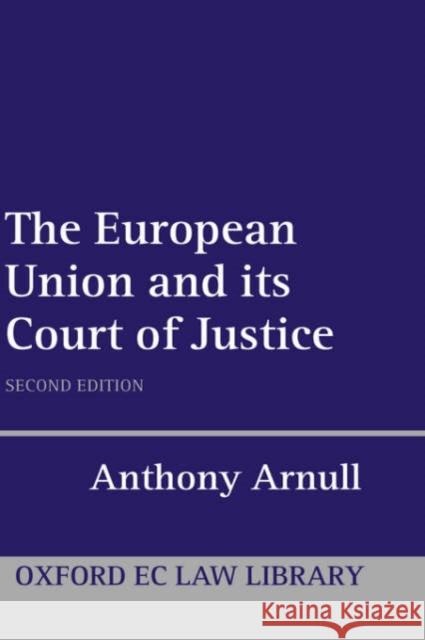The European Court of Justice » książka
The European Court of Justice
ISBN-13: 9780199258840 / Angielski / Twarda / 2006 / 780 str.
The European Court of Justice
ISBN-13: 9780199258840 / Angielski / Twarda / 2006 / 780 str.
(netto: 500,10 VAT: 5%)
Najniższa cena z 30 dni: 511,19
ok. 16-18 dni roboczych.
Darmowa dostawa!
This book is part of the Oxford EC Law Library. The aim of this series is to publish important and original studies of the various branches of European Community Law. Each work provides a clear, concise, and original critical exposition of the law in its social, economic, and political context, at a level which will interest the advanced student, the practitioner, the academic, and government and Community officials.
The European Court of Justice is a controversial institution. Its supporters see it as having played a central and positive role in shaping a polity which has given its Member States an unprecedented degree of peace, stability, and prosperity. To its detractors, it has ignored the Treaties from which it derives its powers in order to pursue an agenda of its own about the political shape of Europe. The purpose of this book is to record and analyse the contribution the Court has made to shaping the legal framework within which the European Union operates.
It examines the case law of the Court on the scope of its own powers and important constitutional questions with which it has been confronted: the relationship between Community law and national law, the impact of Community law on national remedies, the development of general principles of law and the place of fundamental rights.
This book also looks at the case law of the Court in certain key areas of substantive law: the free movement of goods, persons and services, competition and equal treatment for men and women. The final section comprises a discussion of some general questions relating to the Court's overall approach. To what extent has it varied with the passage of time? What has been its relationship with other institutions of the Union and the national courts of the Member States? Should we regard the central role the court has undoubtedly played in the Union as legitimate? What is likely to be the effect on the Court of the latest set of amendments to the Union treaties contained in the Treaty of Amsterdam? The European Union and its Court of Justice will be an important source of work for practitioners, scholars and students interested in European Union law.











